
NY saxophonist Steve Lehman builds on his work with spectral harmony, expanding the harmonic palette with live electronics & a custom-built vibraphone, in an octet with Jonathan Finlayson, Mark Shim, Tim Albright, Chris Dingman, Jose Davila, Drew Gress & Tyshawn Sorey.
Out of Stock
Quantity in Basket: None
Log In to use our Wish List
Shipping Weight: 3.00 units
Sample The Album:
Steve Lehman-alro saxophone, live electronics
Jonathan Finlayson-trumpet
Mark Shim-tenor saxophone
Tim Albright-trombone
Chris Dingman-vibraphone
Jose Davila-tuba
Drew Gress-bass
Tyshawn Sorey-drums
Click an artist name above to see in-stock items for that artist.
UPC: 808713005424
Label: Pi Recordings
Catalog ID: PI 54
Squidco Product Code: 19110
Format: CD
Condition: New
Released: 2014
Country: USA
Packaging: Digipack
Recorded at Systems Two Studio, in Brooklyn, NY, on Janurary 20th and 21st, 2014, by Mike Marciano.
"Mise en Abîme is the highly-anticipated follow-up to 2009's Travail, Transformation and Flow, by the Steve Lehman Octet. Described as a "breathtaking accomplishment" by The New York Times, Travail was widely hailed as a groundbreaking synthesis of spectral harmony and jazz improvisation. On Mise en Abîme, Lehman continues to build on his work with spectral harmony - expanding the harmonic palette by incorporating live electronics and a custom-built vibraphone - while at the same time reinforcing his connection to the jazz tradition with three radically re-imagined Bud Powell compositions. The result is an album that solidifies Lehman's status as a visionary composer with powerful new ideas about the future of harmony, rhythm, compositional form, and electro-acoustic improvisation in jazz.
The hallmark of spectral music is the shimmering, otherworldly sonorities that are created through the precise juxtaposition of individual instrumental voices. The most prominent overtones of a given sound source provide the framework for microtonal harmonies that are organized according to frequency relationships, rather than the intervals of a musical scale. Lehman studied under Tristan Murail - the foremost proponent of the spectral aesthetic - while earning his doctorate in music composition at Columbia University. Using spectral techniques, Lehman conjures novel and unexpected sounds that often evoke the iridescent sheen of electronic music. Most improvised music that employs microtonal harmonies is static and anchored by an unchanging drone or scale. But Lehman is unique in that he composes microtonal music with a great deal of harmonic movement, where a chord based on a harmonic spectrum can easily modulate to another tonal center. When used as a platform for improvisation, the result can be thought of as a kind of "spectral chord changes" for the soloist to negotiate and transform. "Steve's use of spectral techniques in jazz-inspired music is quite unprecedented," says Tristan Murail. Such fusion "can sound clumsy or strained, but Steve's music sounds very natural, very special, very personal."
Lehman has continued to grow as a composer/performer since the release of Travail in 2009. He is a recipient of the prestigious 2014 Doris Duke Artist Award - an unrestricted $275,000 fellowship - and has undertaken extensive research on rhythm cognition at Columbia and worked on interactive electronics as a research fellow at IRCAM, the world renowned electro-acoustic research center in Paris, France. Looking to expand the harmonic possibilities of his music for Mise en Abîme, Lehman had a vibraphone custom-built with alternate tunings: "I knew it would force me into some new areas compositionally. And since this music involves so much microtonal harmony, you gain a great deal of fluidity when the main chordal instrument can actually execute those sonorities." According to pianist/composer Vijay Iyer, a frequent Lehman collaborator, "Steve occupies a pivotal position at the intersection of a few different music communities: those bearing the labels 'jazz,' 'new music' and 'electronic music.' He approaches this significant responsibility with care, humility and generosity. His music is simultaneously engaging and challenging, offering listeners abundant joy and unsettling mystery. His octet is one of the most innovative, virtuosic and thrilling working bands around today. This music is the future!"
The octet is the same powerhouse ensemble featured on Travail: Mark Shim on tenor saxophone, Drew Gress on bass, Tyshawn Sorey on drums, Jonathan Finlayson on trumpet, Jose Davila on tuba, Tim Albright on trombone, and Chris Dingman on vibraphone. It, too, has made a giant leap forward in the last five years: extensive touring has honed the band into a streamlined machine, one that is uniquely equipped to tackle this complex music and connect with audiences around the world. Lehman had the luxury of performing this music throughout the East Coast, including a five-night run at The Stone in New York City, just prior to entering the recording studio. As a result, the band buzzes with a visceral energy throughout Mise en Abîme, negotiating the album's unique challenges with aplomb.
Lehman's compositions combine his theoretical leanings with physical excitement. In "Segregated and Sequential," microtonal harmonies splinter apart with stroboscopic effect, while the music speeds up, slows down, and stands still, all at once. "13 Colors" presents two sets of spectral chord changes for Lehman's razor-sharp alto solo, before culminating in a cascading ensemble harmony. On "Chimera/Luchini" Lehman combines instrumental timbres with shadowy electronic underpinnings, creating a one-of-a-kind soundscape for Chris Dingman's vibraphone solo before morphing into "Luchini" by the hip-hop duo Camp Lo. "Codes" is a futurist tribute to the great Cameroonian drummer, Brice Wassy. And "Beyond All Limits" is a rough and tumble ensemble showcase that's thrown into relief by electronic textures that expand in real-time to conform to the rhythmic and harmonic structure of the piece.
The album is also an homage to Bud Powell and his legacy as a cutting-edge composer and conceptualist. Lehman reconstructs three Powell compositions, taking their basic harmonic framework and recasting them into a spectral domain. "Jackie McLean was one of my most significant mentors, and Bud was one of Jackie's mentors. And like me, Bud was someone who grew up in New York, spent a lot of time in France, and felt a connection to the French classical tradition. For him it was Frédéric Chopin. For me it's Tristan Murail and Gérard Grisey. It's a thread of continuity that I felt was important to explore."
Balancing cutting-edge compositional techniques with a deeply-rooted understanding of jazz's historical lineage, Lehman takes another major step forward with Mise en Abîme: "The title is really about being committed to the challenge of discovery and surprise in music, while also embracing your core identity as an artist and kind of accepting that you're really just rediscovering yourself over and over again. It's a kind of creative vortex that helps to keep everything in balance." "-Pi Recordings
Artist Biographies
• Show Bio for Steve Lehman "Described as "a state-of-the-art musical thinker" and a "dazzling saxophonist," by The New York Times, Steve Lehman (b. New York City, 1978) is a composer, performer, educator, and scholar who works across a broad spectrum of experimental musical idioms. Lehman's pieces for large orchestra and chamber ensembles have been performed by the International Contemporary Ensemble (ICE), So Percussion, Kammerensemble Neue Musik Berlin, the JACK Quartet, the PRISM Saxophone Quartet, and the Talea Ensemble. His recent recording, Mise en Abîme (Pi, 2014) was called the #1 Jazz Album of the year by NPR Music and The Los Angeles Times. And his previous recording, Travail, Transformation & Flow (Pi, 2009), was chosen as the #1 Jazz Album of the year by The New York Times. The recipient of a 2015 Guggenheim Fellowship and a 2014 Doris Duke Artist Award, Lehman is an alto saxophonist who has performed and recorded nationally and internationally with his own ensembles and with those led by Anthony Braxton, Vijay Iyer, Jason Moran, Meshell Ndegeocello, and High Priest of Anti-Pop Consortium, among many others. His recent electro-acoustic music has focused on the development of computer-driven models for improvisation, based in the Max/MSP programming environment. Lehman's work has been favorably reviewed in Artforum, Downbeat Magazine, The New York Times, Newsweek, and The Wire, and on National Public Radio, the BBC, and SWR. As a Fulbright scholar in France during the 2002-2003 academic year, Lehman began researching the reception of African-American experimental composers working in France during the 1970s. His article in the journal Critical Studies in Improvisation, "I Love You with an Asterisk: African-American Experimental Composers and the French Jazz Press, 1970-1980," is based on his Fulbright research. More recently, Lehman has published writings and presented lectures on a wide range of topics, including jazz pedagogy, rhythm cognition, and European notions of American experimentalism. His current scholarship, including a forthcoming contribution to the Oxford Handbook of Spectral Music, examines the overlapping histories of spectral composition and jazz improvisation. Lehman received his B.A. (2000) and M.A. in Composition (2002) from Wesleyan University where he studied under Anthony Braxton, Jay Hoggard, and Alvin Lucier, while concurrently working with Jackie McLean at the Hartt School of Music. He received his doctorate with distinction in Music Composition from Columbia University (2012), where his principal teachers included Tristan Murail and George Lewis. Lehman has taught undergraduate courses at Wesleyan University, the Conservatoire National Supérieur de Musique de Paris, New School University, and Columbia University, and has presented lectures at Amherst College, UC Berkeley, The Berklee School of Music, The Banff Centre, The Royal Academy of Music in London, and IRCAM in Paris, where he was a 2011 research fellow. Beginning in September 2016, Lehman will join the music faculty at The California Institute of the Arts." ^ Hide Bio for Steve Lehman • Show Bio for Jonathan Finlayson "Jonathan Finlayson has been recognized by the New York Times as "...an incisive and often surprising trumpeter," who is "...fascinated with composition." Born in 1982 in Berkeley, CA, Finlayson began playing the trumpet at the age of ten in the Oakland public school system. He came under the tutelage of Bay Area legend Robert Porter, a veteran trumpeter from the bebop era who took Finlayson under his wing; he was often seen accompanying Porter on his gigs about town and sitting in on the popular Sunday nights jam session at the Bird Cage. He subsequently attended the New School for Jazz and Contemporary Music where he studied with Eddie Henderson, Jimmy Owens and Cecil Bridgewater. Finlayson is a disciple of the saxophonist/composer/conceptualist Steve Coleman, having joined his band Five Elements in 2000 at the age of 18. He is widely admired for his ability to tackle cutting-edge musical concepts with aplomb. Finlayson has performed and recorded in groups led by Steve Lehman, Mary Halvorson, Craig Taborn, Henry Threadgill and played alongside notables such as Von Freeman, Jason Moran, Dafnis Prieto and Vijay Iyer." ^ Hide Bio for Jonathan Finlayson • Show Bio for Mark Shim "Mark Shim is a jazz tenor saxophonist. Born in Kingston, Jamaica, Shim's family moved to Canada when he was eight and then settled in Richmond, Virginia five years later. He started on sax in seventh grade, graduating from high school in 1991 and attending Virginia Commonwealth University and William Paterson College. In 1994 he moved to Brooklyn, where he played and recorded with Hamiett Bluiett in Harlem. He then played with Elvin Jones, Mose Allison, Betty Carter, Greg Osby, and the Mingus Big Band. Shim's debut record for Blue Note appeared in 1998, with two more following on the label in 2000." ^ Hide Bio for Mark Shim • Show Bio for Chris Dingman "Chris Dingman is a vibraphonist and composer known for his distinctive approach to the instrument: sonically rich and conceptually expansive, bringing listeners on a journey to a beautiful, transcendent place. He has been profiled by NPR, the New York Times, DRUM magazine and many other publications, and has received fellowships and grants from the Chamber Music America, the Doris Duke Foundation, New Music USA, and the Herbie Hancock Institute (formerly the Thelonious Monk Institute). Dingman has done significant work with legendary artists Herbie Hancock and Wayne Shorter as well as next generation visionaries such as Jen Shyu, Ambrose Akinmusire, Steve Lehman, and many others, performing around the world including India, Vietnam, and extensively in Europe and North America. Hailed by the New York Times as a "dazzling" soloist and a composer with a "fondness for airtight logic and burnished lyricism," the fluidity of his musical approach has earned him praise as "an extremely gifted composer, bandleader, and recording artist." (Jon Weber, NPR). Education While growing up in San Jose, California, Dingman began piano and percussion studies at an early age. He went on to attend Wesleyan University, where he received his B.A. with honors in music. While at Wesleyan, he studied intensively with vibraphonist Jay Hoggard, drummer Pheeroan AkLaff, composer/multi-instrumentalist Anthony Braxton, and mridangist David Nelson. During this time, he was heavily involved in the study of many of the world's musical cultures, including South Indian, West African, Korean, Afro-Cuban, and Brazilian music. In the summer of 2000, his studies brought him to Kerala, India to delve further into mridangam and South Indian classical music. In 2005, Dingman was one of only seven musicians selected by Herbie Hancock, Wayne Shorter, and Terence Blanchard to participate in the Thelonious Monk Institute of Jazz Performance at the University of Southern California (USC) in Los Angeles. At the Institute, he studied with Terence Blanchard, Ron Carter, Benny Golson, Jimmy Heath, Jerry Bergonzi, Wynton Marsalis, Jason Moran, Lewis Nash, Hal Crook, Stefan Harris, John Magnussen, Vince Mendoza, Russell Ferrante, and many others. He received his Master of Music degree from USC and the Monk Institute in 2007. During his time at the Monk Institute, Dingman had the opportunity to perform extensively with Herbie Hancock and Wayne Shorter. In November of 2005, they traveled with the Monk Institute ensemble on a U.S. State Department tour of Vietnam. The ensemble gave concerts and master classes in Hanoi and Ho Chi Minh City. In January of 2007, he traveled again with Hancock, Shorter, and the Monk Institute ensemble, this time to Mumbai, Calcutta, New Delhi, and Agra, India, where they performed for capacity crowds and presented clinics at the Ravi Shankar Institute in Delhi and St. John's School in Mumbai.Teaching In addition to performing, Chris is an active educator, working with students of all ages and levels for the past 15 years. His extensive teaching experience includes presenting master classes at conservatories and schools both nationally and internationally (including Miami-Dade College, Trinity College, Vancouver Jazz Festival, the National Conservatory of Vietnam, Staffeldsgate College in Oslo, Norway, and more), directing a summer music camp for students ages 11-18, leading jazz ensembles at the high school and middle school levels, and teaching group percussion classes for both children and adults." ^ Hide Bio for Chris Dingman • Show Bio for Jose Davila "Tuba player and trombonist Jose Davila is a versatile New York-based musician whose work spans across a broad spectrum of musical genres; everything from traditional to cutting-edge jazz, to salsa and classical music. He is currently a member of Henry Threadgill's Zooid and bands led by guitarist Liberty Ellman and alto saxophonist Steve Lehman. His work with both Threadgill and Ellman extends the tuba from its traditional role as part of the rhythm section to a front-line solo voice. His playing can also be heard on the Grammy-nominated salsa recording "Un Gran Dia en el Barrio” from the Spanish Harlem Orchestra and "Remembranzas” and "Siguendo la Tradicion” from Soneros del Barrio. Davila has also worked in the bands of Ray Charles, Andrew Hill, Tito Puente, Celia Cruz, Marc Anthony, Eddie Palmieri, Ray Anderson, Butch Morris, Ted Nash, along with the Lincoln Center Afro Latin Jazz Orchestra and the American Symphony and New York City Opera Orchestras. A native of Puerto Rico who was raised on the East Coast, Jose received his formal musical training from the University of Connecticut and Mannes College of Music." ^ Hide Bio for Jose Davila • Show Bio for Drew Gress "Drew Gress (born November 20, 1959) is an American jazz double-bassist and composer born in Trenton, New Jersey, raised in the Philadelphia area, and currently based in New York City. Biography Gress became interested in jazz and the double bass while a teenager, joining the Pennsbury Concert Jazz Band, a nationally-prominent high school jazz ensemble, in 1975, spending two years as bassist and arranger for the group. His interest in composing original material for large ensembles, such as those of Johnny Richards, Billy May, and Pat Williams, led him to Baltimore's Towson State University in 1977, where he studied composition and counterpoint with Hank Levy, known for his work with Don Ellis and Stan Kenton. While at Towson, Gress established a playing relationship with saxophonist Ellery Eskelin, with whom he cofounded Joint Venture with Paul Smoker and Phil Haynes. They released three albums on Enja Records between 1987 and 1994. During the 1980s in the Baltimore/Washington DC area, he played with Sonny Stitt, Clifford Jordan, Albert Dailey, Mose Allison, Zoot Sims, Cab Calloway, Buddy Hackett, Phyllis Diller, and pianist Marc Copland, with whom he still plays today. He also served on the faculties of the Peabody Conservatory, Towson State University, and the Baltimore School for the Arts. He formed a quartet, Tekke, in 1989 with David Kane, Glenn Cashman, and Michael Smith. In 1997, he cofounded the cooperative improvising trio Paraphrase with saxophonist/composer Tim Berne and drummer Tom Rainey. Together, they pursued a compositional approach to free improvisational practice. They recorded three live albums together and toured extensively. In 1998, he released his first album as leader, Heyday, with his band Jagged Sky (featuring David Binney, Ben Monder, and Kenny Wollesen). 2001 saw the release of Spin & Drift with Uri Caine, Berne, and Rainey, in which he played pedal steel guitar for the first time. Earlier in the 1990s, he served tenures as artist in residence at University of Colorado-Boulder and at Russia's St. Petersburg Conservatory. Since 1992, Gress has maintained an extensive touring schedule, traveling to Europe, Asia, and South America. Those with whom he has and continues to work include Tim Berne, Ravi Coltrane, Uri Caine, John Hollenbeck, Fred Hersch, Marc Copland, Don Byron, Steve Coleman, Dave Douglas, Jack DeJohnette, John Surman, Ray Anderson, Erik Friedlander, Kenny Werner, Bill Carrothers, Ralph Alessi, Tony Malaby, Steve Lehman, and Edsel Gomez. To date, he has appeared on over 140 recordings, 4 of which have received Grammy nominations. Gress' own ensembles have toured Europe four times since 2002, in addition to isolated festival appearances in Italy and Portugal. In 2004, the UK's BBC Radio and London's Guardian selected his quartet's live radio broadcast as Jazz Concert of the Year. Composition awards include an NEA grant (1990), funding from Meet the Composer (2003), a Chamber Music America New Works Grant (2005), a CMA French-American Exchange Grant (2007), and an Encore Grant from that same organization (2008). He continues to compose for larger groups and has begun experimenting with virtual synthesizers." ^ Hide Bio for Drew Gress • Show Bio for Tyshawn Sorey "Tyshawn Sorey (born July 8, 1980 in Newark, New Jersey) is an American musician and composer who plays drum set, percussion, trombone and piano. Since graduating from William Paterson University, Sorey has been a sought-after musician in many different musical idioms. He is both a performer and composer, and has had works reviewed in The Wire, The New York Times, The Village Voice, Modern Drummer and Down Beat. In August 2009, Sorey was given the opportunity to curate a month of performances at the Stone, a New York performance space owned by John Zorn. He was selected as an Other Minds 17 (2012). Sorey recently completed a Master of Arts in composition at Wesleyan University in Middletown, Connecticut. In the fall of 2011, he began pursuing doctoral work in composition at Columbia University. To date, Sorey has released four albums as a leader: That/Not (2007, Firehouse 12 Records), Koan (2009, 482 Music), Oblique (2011, Pi Recordings) and Alloy (2014, Pi Recordings). He has recorded or performed with musicians including Wadada Leo Smith, Steve Coleman, Anthony Braxton, John Zorn, Steve Lehman, Joey Baron, Muhal Richard Abrams, Pete Robbins, Vijay Iyer, Dave Douglas, Butch Morris and Sylvie Courvoisier, among many others." ^ Hide Bio for Tyshawn Sorey
11/20/2024
Have a better biography or biography source? Please Contact Us so that we can update this biography.
11/20/2024
Have a better biography or biography source? Please Contact Us so that we can update this biography.
11/20/2024
Have a better biography or biography source? Please Contact Us so that we can update this biography.
11/20/2024
Have a better biography or biography source? Please Contact Us so that we can update this biography.
11/20/2024
Have a better biography or biography source? Please Contact Us so that we can update this biography.
11/20/2024
Have a better biography or biography source? Please Contact Us so that we can update this biography.
11/20/2024
Have a better biography or biography source? Please Contact Us so that we can update this biography.
Track Listing:
1. Segregated and Sequential 4:03
2. 13 Colors 4:05
3. Glass Enclosure Transcription 5:08
4. Codes: Brice Wassy 7:46
5. Autumn Interlude 4:23
6. Beyond All Limits 4:47
7. Chimera/Luchini 7:02
8. Parisian Thoroughfare Transcription 2:33
Improvised Music
Jazz
NY Downtown & Metropolitan Jazz/Improv
Pi Records
Staff Picks & Recommended Items
Octet Recordings
Search for other titles on the label:
Pi Recordings.


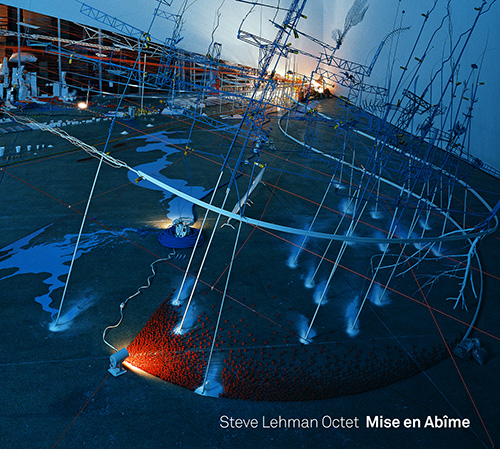
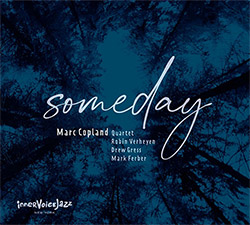
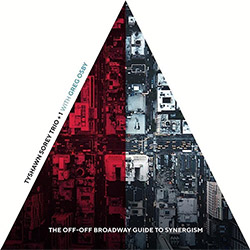
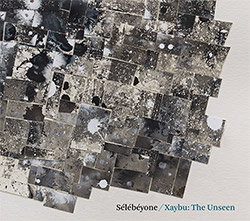




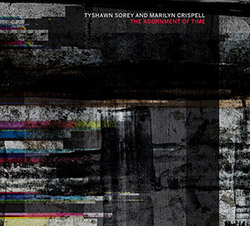
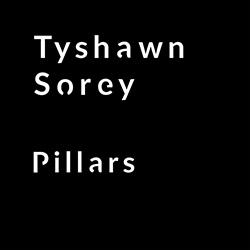


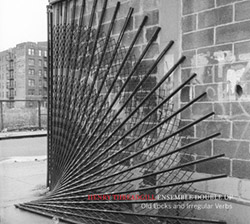


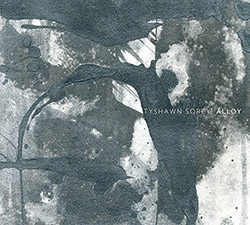


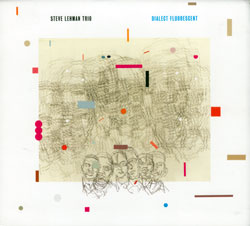
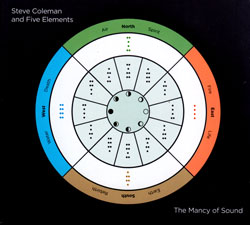
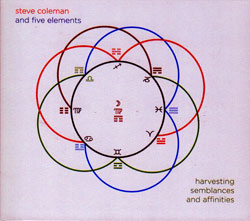

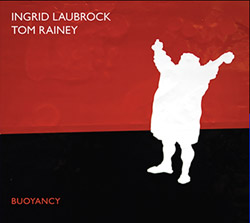
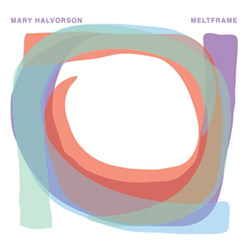
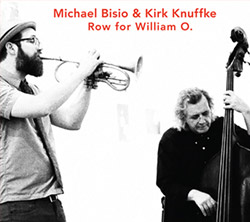

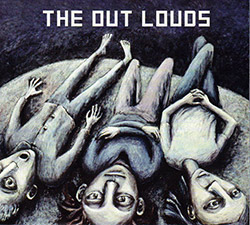


![Guy, Barry / Ken Vandermark: Occasional Poems [2 CDs]](https://www.teuthida.com/productImages/misc4/34849.jpg)
![Novoa / Carter / Mela Trio: Vol.1 [VINYL]](https://www.teuthida.com/productImages/misc4/35236.jpg)


![Elephant9 : Mythical River [VINYL]](https://www.teuthida.com/productImages/misc4/34624.jpg)
![Evans, Peter (Evans / Eldh / Black): Extra [VINYL]](https://www.teuthida.com/productImages/misc4/35279.jpg)

![McPhee, Joe: Straight Up, Without Wings [BOOK]](https://www.teuthida.com/productImages/misc4/35454.jpg)
![Jeck, Philip: rpm [2 CDs]](https://www.teuthida.com/productImages/misc4/35455.jpg)













![Barker / Parker / Irabagon: Bakunawa [VINYL]](https://www.teuthida.com/productImages/misc4/35533.jpg)
![Blaser, Samuel / Marc Ducret / Peter Bruun: Dark Was The Night, Cold Was The Ground [VINYL 10-inch]](https://www.teuthida.com/productImages/misc4/35492.jpg)








![Warren, Kenny (Warren / Hoffman / Ellman): Sweet World [VINYL]](https://www.teuthida.com/productImages/misc4/35451.jpg)




![Blake, Ran / Dave Knife Fabris: Live Amsterdam 2006, First Visit [CD + POSTCARDS]](https://www.teuthida.com/productImages/misc4/35275.jpg)













![DNS: Taking Big Bites Of The Khandas Three Cafes Deep [2 CDs]](https://www.teuthida.com/productImages/misc4/35334.jpg)




![Cleaver, Gerald: The Process [VINYL]](https://www.teuthida.com/productImages/misc4/34966.jpg)




![Alva Noto: HYbr:ID II [VINYL 2 LPs]](https://www.teuthida.com/productImages/misc4/35201.jpg)

![Baron, Derek / Luke Martin: Distinct and Concealed [CASSETTE + DOWNLOAD]](https://www.teuthida.com/productImages/misc4/35079.jpg)

![Lyle, Erica Dawn : Colonial Motels [CASSETTE + DOWNLOAD]](https://www.teuthida.com/productImages/misc4/35080.jpg)









![Sanna, Claudio: Compositori Sardi Contemporanei II [2 CDs]](https://www.teuthida.com/productImages/misc4/35317.jpg)







![Zurria, Manuel: Fame di Vento [3 CDs]](https://www.teuthida.com/productImages/misc4/35167.jpg)

![Granberg, Magnus / Nattens Inbrott / Skogen: Holde Traume, Kehret Wieder! [2 CDs]](https://www.teuthida.com/productImages/misc4/35038.jpg)
![Frey, Jurg: Outermost Melodie [2 CDs]](https://www.teuthida.com/productImages/misc4/35039.jpg)

![Pavone, Jessica: Reverse Bloom [VINYL]](https://www.teuthida.com/productImages/misc4/34895.jpg)




![Modney (Modney / Wooley / Gentile / Roberts / Pluta / Symthe / ...): Ascending Primes [2 CDs]](https://www.teuthida.com/productImages/misc4/34852.jpg)









![Elephant9 with Terje Rypdal: Catching Fire [VINYL 2 LPs]](https://www.teuthida.com/productImages/misc4/35355.jpg)
![Deerlady (Obomsawin, Mali / Magdalena Abrego): Greatest Hits [VINYL]](https://www.teuthida.com/productImages/misc4/34876.jpg)




![Haino, Keiji: Black Blues [2 CDs]](https://www.teuthida.com/productImages/misc4/35109.jpg)



![Surplus 1980: Illusion of Consistency [CD]](https://www.teuthida.com/productImages/misc4/35069.jpg)
![Staiano, Moe: Away Towards the Light [VINYL + DOWNLOAD]](https://www.teuthida.com/productImages/misc4/35037.jpg)



![Caveira (Gomes / Sousa / Abras / Ferrandini): Ficar Vivo [VINYL]](https://www.teuthida.com/productImages/misc4/34643.jpg)
![Gregg, J. J. / David Van Auken: Lunar Prairie [CD w/ DOWNLOAD]](https://www.teuthida.com/productImages/misc4/34611.jpg)

![Coultrain: Mundus [VINYL]](https://www.teuthida.com/productImages/misc4/32439.jpg)
![Mattin: Songbook #6 [VINYL]](https://www.teuthida.com/productImages/misc4/27317.jpg)
![Punkappella: Wake Up [7-inch VINYL]](https://www.teuthida.com/productImages/misc4/17519.jpg)
![Residents, The: WARNING: UNiNC.: Live And Experimental Recordings 1971-1972 [VINYL 2 LPs]](https://www.teuthida.com/productImages/misc4/31521.jpg)
![Coultrain: Phantasmagoria [VINYL]](https://www.teuthida.com/productImages/misc4/30142.jpg)
![Lennon, Sean Ono: Asterisms [VINYL]](https://www.teuthida.com/productImages/misc4/34517.jpg)

![Coley, Byron: Dating Tips for Touring Bands [VINYL]](https://www.teuthida.com/productImages/misc4/17906.jpg)

![Lost Kisses: My Life is Sad & Funny [DVD]](https://www.teuthida.com/productImages/misc4/lostKissesDVD.jpg)